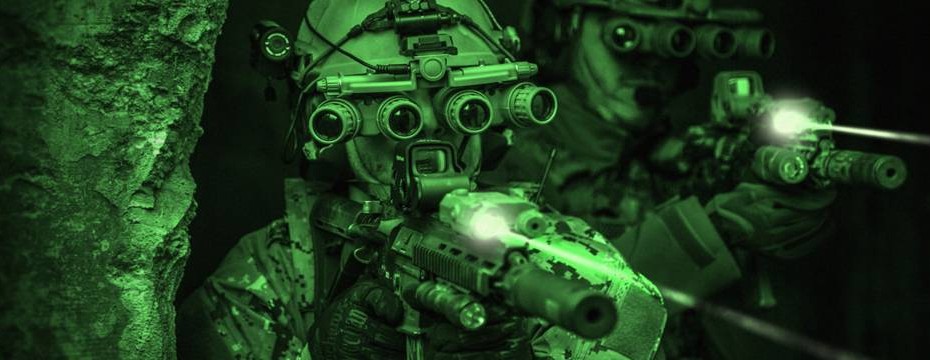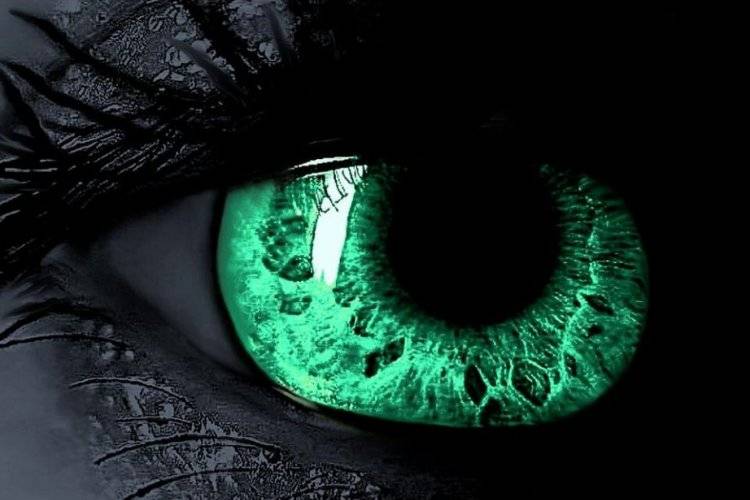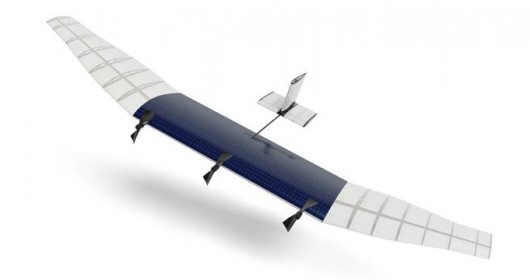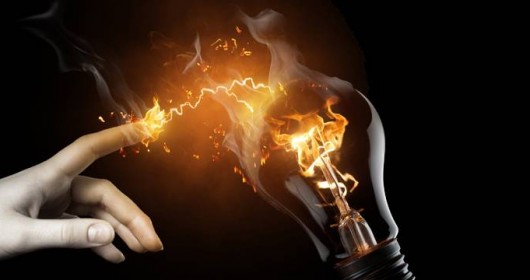Night vision contact lenses for future super-soldiers will replace current night vision glasses
Today, soldiers have to wear bulky night vision glasses to see in the dark. But those can be soon replaced by a much smaller solution, which utilizes contact lenses.
Using a material called graphene, Ted Norris and Zhaohui Zhong from the University of Michigan have developed a super-thin infrared light sensor that could be applied onto contact lenses or night vision glasses to improve their performance. Graphene is unique in its ability to absorb infrared rays and transform them into electrical signals, almost the same way that silicon chips in digital cameras absorb visible light.
To get a night-vision image, the trick was to insert an insulating layer between two graphene layers and then adding electric current. As infrared light reaches the lens, the electrical reaction is strengthened to the point where it can provides a visible image.
“If we integrate it with a contact lens or other wearable electronics, it expands your vision. It provides you another way of interacting with your environment” says Mr. Zhong.
[sc:ad-text]
The technology is still far from finished though and for today the only option to see in dark is by using night vision glasses. The scientists have years to go until they can attain enough light sensitivity and the ability to work in wide range of temperatures.
Besides initial support from National Science Foundation, the project needs governmental and commercial partners and supports to move forward. The teams say the lenses could have wide applications in areas like photography or even in car windshields.
[sc:end t=”Night Vision Glasses Will Be Soon Replaced”]









Graphene-based glasses that suppress the halo/glare from bright light sources in dim/dark environments would have a massive market in people who have multifocal intraocular lense (IOL) implants from cataract surgery. IOLs are becoming the implant of choice for cataract treatment because they enable the patient to have close and distance vision. However the side effect is an extreme halo/glare effect around bright points of light in the the dark, making it difficult to see during night time driving, and frustrating in dimly lit environments such as walking down a street at nighttime, restaurants, auditoriums, etc. The market for glasses such as this is very large because there is a large and growing number of people receiving IOL implants to resolve cataracts, and the majority of them are in the developed world and of an age that they have high disposable income and/or health insurance. The market is further increased by people of all ages who suffer a similar halo/glare effect from bright lights due to other prevalent eye conditions such as astigmatism. Has any research been performed in this area with a view to developing/marketing glasses to reduce/eliminate IOL halo/glare?